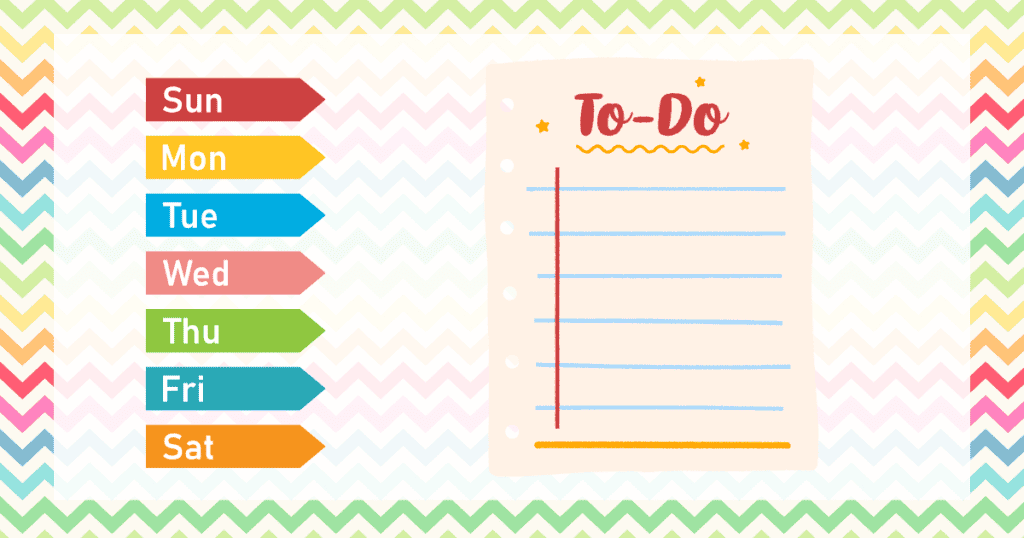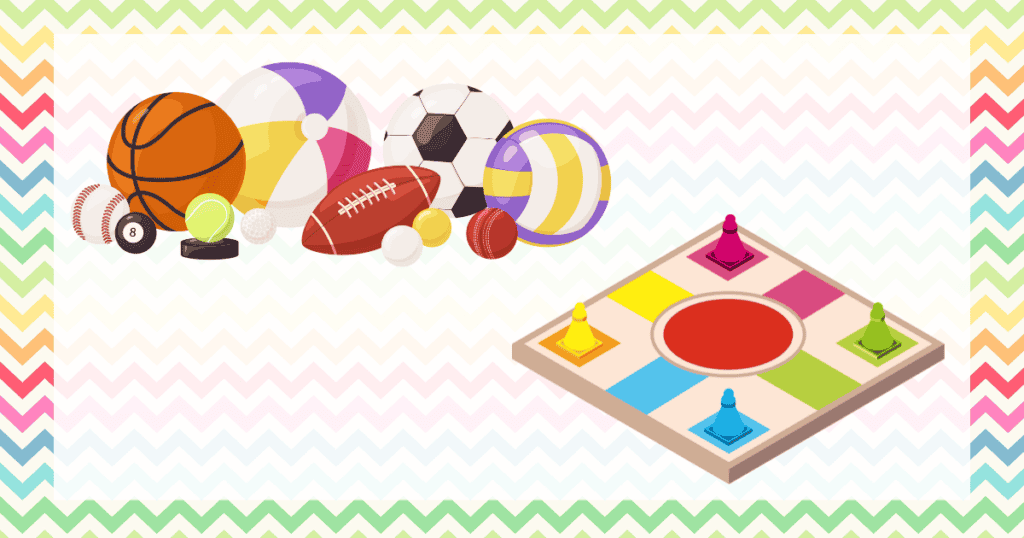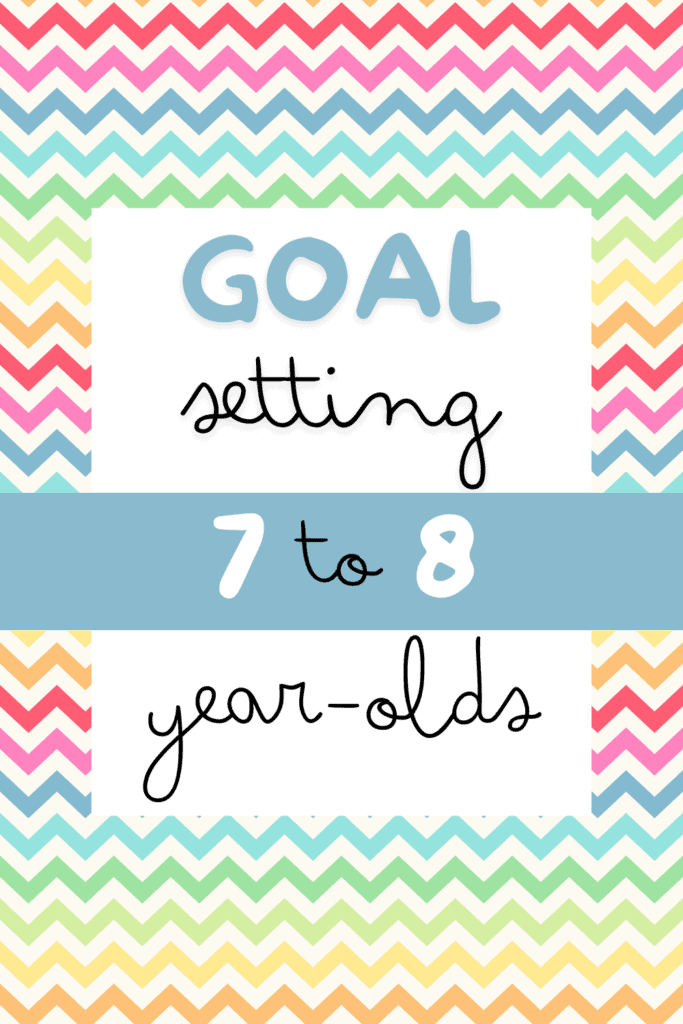The structure of goals for 7-8 year olds can start to resemble the goal structure we might be a little more familiar.
Goal-setting not only supports their academic and social development but also helps build confidence and responsibility. So, let’s dive into 10 amazing goal categories and ideas to empower your little superstar this year!
1. Enhance Reading Comprehension
Encourage your child to read age-appropriate books regularly and discuss the stories with them to ensure understanding. This habit builds a lifelong love for reading.
We love to start to introduce Magic Treehouse around this age. There is so much power in getting your child reading a book series. They are more likely to keep reading and stay interested. (Check out my recommendation for kid books series!)
- Why it matters: Improves literacy skills, enhances vocabulary, and fosters a love for reading.
- Pro tip: Start a family book club where everyone shares their favorite part of the story.
2. Develop Basic Writing Skills

Get those pencils moving! Practice writing sentences, short stories, or keeping a daily journal. It’s a great way to spark creativity and improve communication.
This is a great time to really work on their penmanship. Their little hands are ready for the work. (I always start typing at this age too! See goal #10 below.)
- Why it matters: Enhances communication skills, creativity, and fine motor coordination.
- Pro tip: Encourage your child to write letters to grandparents or pen “stories” about their day.
3. Strengthen Math Fundamentals

Math can be fun, promise! Focus on mastering addition, subtraction, basic multiplication, and solving simple word problems. Also, you can introduce them to a simple, simple calculator.
Focusing on math can really help your child from falling behind. A child being able to keep up and understand the math concepts enough to build on can really help keep your child from getting discouraged. This can help build a love for math.
- Why it matters: Builds a strong mathematical foundation, logical thinking, and problem-solving skills.
- Pro tip: Use everyday situations like cooking or shopping to practice math in real life.
4. Foster Organizational Skills

Teach your child to organize their school materials, manage homework, and keep track of assignments using planners or checklists. There are so many cute planners out there to keep them encouraged!
They will need assistance with this still, but help them through the process of thinking out how to get the tasks done.. Help them write a checklist and determine which tasks are the most important at that time.
You can also start to help them see how they can break up a large task into smaller ones.
- Why it matters: Promotes responsibility, time management, and reduces stress.
- Pro tip: Let them choose a colorful planner or decorate their own checklist for added motivation.
5. Encourage Physical Fitness and Coordination

Get moving! Involve your child in regular physical activities such as sports, dancing, or biking to keep them active and healthy.
This is a good time to set your family culture of making sure your kids know you are “low-screen” or “no-screen” family. Kids need something to do and physical fitness is a great acitivity.
This age they can also start help planning healthy snacks and foods for the family. Have conversations with them about what it means to be healthy and how to pursue a healthy lifestyle.
- Why it matters: Enhances motor skills, promotes a healthy lifestyle, and boosts overall well-being.
- Pro tip: Make it a family affair with weekend hikes or bike rides.
6. Cultivate Social Skills and Teamwork

Facilitate group activities, team sports, or cooperative games to help your child practice sharing, communication, and collaboration.
This is the time that we start team sports. In our family, we try not to overload our kids with too many activities. We do however, encourage them to try at least one team sport per year.
Also: Our rule is if you start you have to finish. I personally believe this is the MOST important lesson from team sports they can learn at this age. Being a dependable teammate is so important!
Why it matters: Develops empathy, cooperation, and the ability to work effectively with others.
- Pro tip: Encourage them to organize a small project with friends, like a lemonade stand or group craft activity.
7. Promote Responsibility Through Chores

Assign age-appropriate chores like tidying their room, setting the table, or helping with simple household tasks. These little responsibilities add up!
Hopefully you have slowly be building up to larger chores and tasks. I personally find it more work to involve the children in the chores, but it pays out in the end…or so I am told.
Have them do daily chores and set at least one larger chore per week. We do these chores on Friday night. This is a little unconventional, but this is when my kids are the most motivated to get them done.
They get to decide if they want to relax or work on Saturday. This is the approach that I take as a mom, so this is the mentality I use with all my children.
- Why it matters: Instills a sense of responsibility, work ethic, and contributes to the household.
- Pro tip: Create a chore chart with rewards to make it fun and motivating.
8. Encourage Creative Expression

Whether it’s drawing, painting, playing music, or crafting, encourage your child to explore their creative side.
We also start really encouraging/(forcing?) musical instruments at this age. Mostly just the piano. Before this we obviously sing and do a lot of other musical activities, but this is when practicing and lessons become part of their routine.
- Why it matters: Stimulates creativity, emotional expression, and cognitive flexibility.
- Pro tip: Set up a mini “art corner” at home with supplies for spontaneous inspiration.
9. Build Emotional Intelligence

Teach your child to recognize and articulate their emotions, understand others’ feelings, and develop coping strategies for stress or challenges.
Keep setting goals for this over, and over, and over again. I have said this before, but this is the most important skill in my book. It will pay dividends for them in the future.
Ask them often about how they felt in certain situations or how they think others felt. Why did they feel like that? What did someone else do that made you think they had those feelings?
This is another great reason so help the start a journal.
- Why it matters: Enhances self-awareness, empathy, and emotional regulation.
- Pro tip: Use books or stories to discuss characters’ emotions and how they handle situations.
10. Develop Basic Technology Skills

Introduce your child to age-appropriate technology, including basic computer skills, educational games, and safe internet practices.
As a family, my children cannot get on the internet without direct supervision and always in a main area. My kids 7-8 rarely need the internet, but we do talk about how we have to be careful.
As I said before, we also start with typing skills. Typing will be a daily activity for them so get them comfortable! There are fun games. In our family, we tie this one with creative expression and our kids write stories to share.
- Why it matters: Prepares them for future digital interactions, improves problem-solving skills, and fosters responsible technology use.
- Pro tip: Teach them to create simple slideshows or drawings using kid-friendly apps.
Tips for Setting and Achieving Goals with 7-8-Year-Olds
- Involve Your Child in Goal Setting: Let your child participate in choosing their goals to increase their commitment and enthusiasm.
- Make Goals Specific and Measurable: Clearly define what success looks like for each goal to track progress effectively.
- Break Down Goals into Manageable Steps: Divide larger goals into smaller, achievable tasks to prevent overwhelm.
- Use Positive Reinforcement: Celebrate achievements with praise, rewards, or special activities to encourage continued effort.
- Create a Visual Progress Tracker: Utilize charts, stickers, or calendars to visually represent progress, making achievements tangible and motivating.
- Establish a Routine: Incorporate goal-related activities into daily or weekly routines to build consistency and habit.
- Provide Support and Guidance: Offer assistance when needed and be available to discuss challenges or adjustments to goals.
- Encourage Self-Reflection: Regularly talk with your child about what they’ve learned, what’s working, and what might need to change.
- Model Goal-Oriented Behavior: Demonstrate your own goal-setting and achievement processes to inspire and teach by example.
- Be Flexible and Patient: Understand that progress may vary and be willing to adjust goals as your child grows and their interests evolve.
By setting and working towards these goals, you’re giving your 7-8-year-old the tools they need to grow academically, socially, and personally.
Remember, it’s not about achieving perfection but about fostering progress, confidence, and joy in learning.

Enjoyed this? Check out….
Great Goals for 3-4 year olds | Set goals with your toddler
Goals for 5-6 year olds | Tips & Tricks for success






Leave a Comment